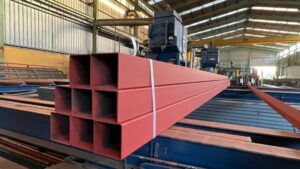
Representatives from German stockholders are taking a predominantly positive attitude towards digitalisation of their business, according to a survey conducted by the monthly Stahlmarkt monitored by Kallanish.
“The online processing of orders especially has a lot of potential,” says Jörg Simon of one of the large steel purchasing cooperatives, Nordwest Handel. “We are putting a focus on developing the basic product data, because it enables distributors to streamline their processes, saving time and money,” he says.
Christian Pokropp, managing director of kloeckner.i cautions that steel distribution is still lagging behind many other industries in digital transformation. “The rapid technical progress, cost pressure and the need to catch up on the development will step up the pace of digital transformation,” he says.
“Digitalisation is absolutely necessary, but the hurdles are high,” says Axel Berger, head of Digital Transformation at thyssenkrupp Materials Services. As examples he names price and margin pressure, complex processes, inefficiencies, a lack of standards and insufficient data. “The good news is that there is enormous potential in our business, and we need to tackle it.”
Finally, Salzgitter highlights the fact that personal consultation with customers remains the key to success. “But digitalisation supports these efforts massively,” the company notes, and points out that its distribution unit Salzgitter Mannesmann Stahlhandel has been occupied intensively with digitalisation over the past five years.




